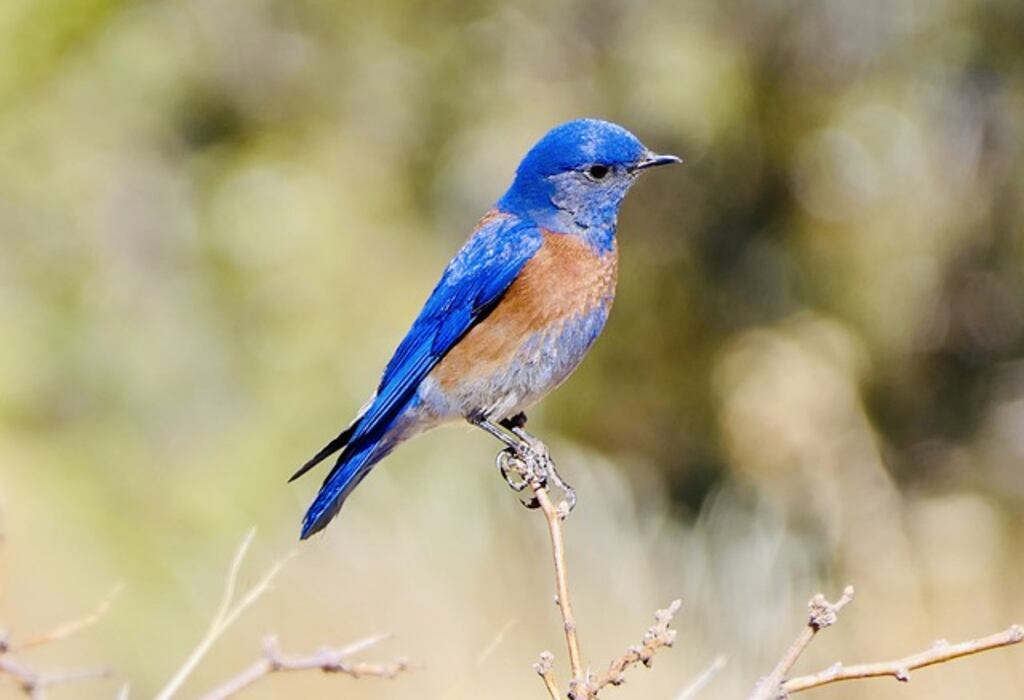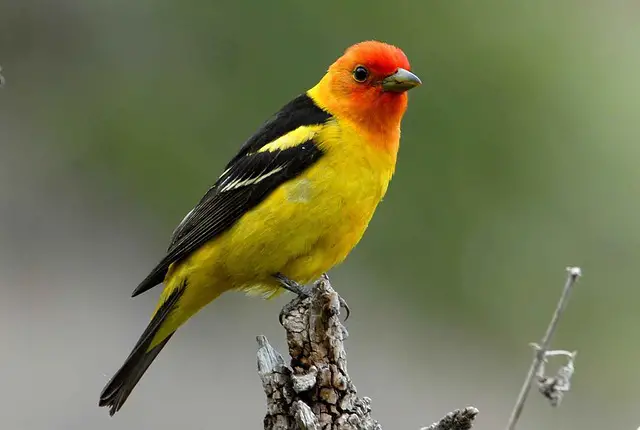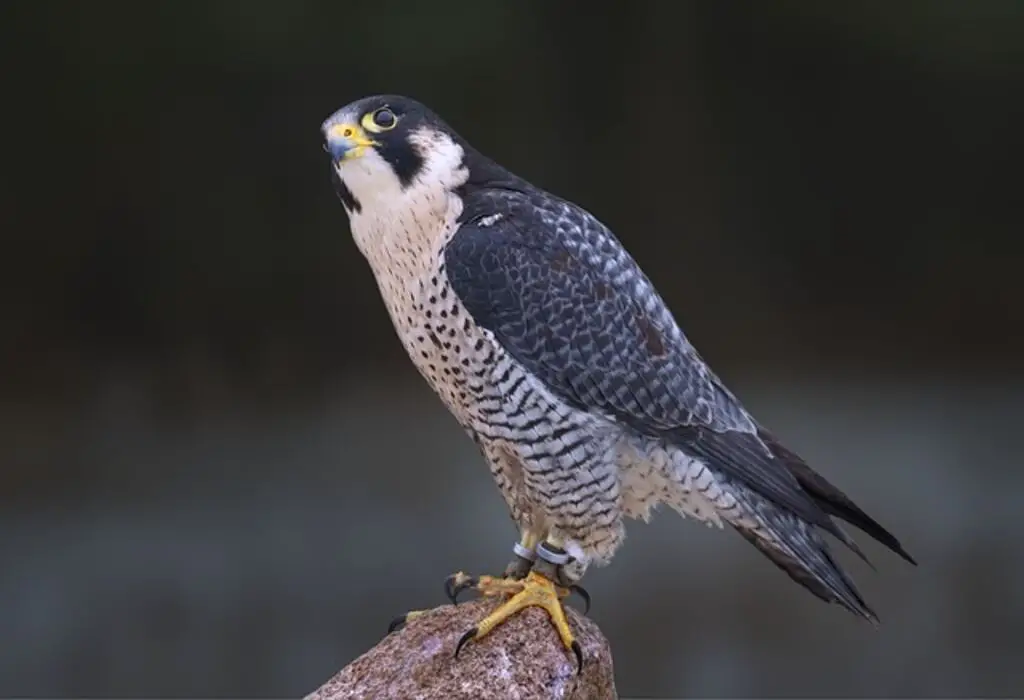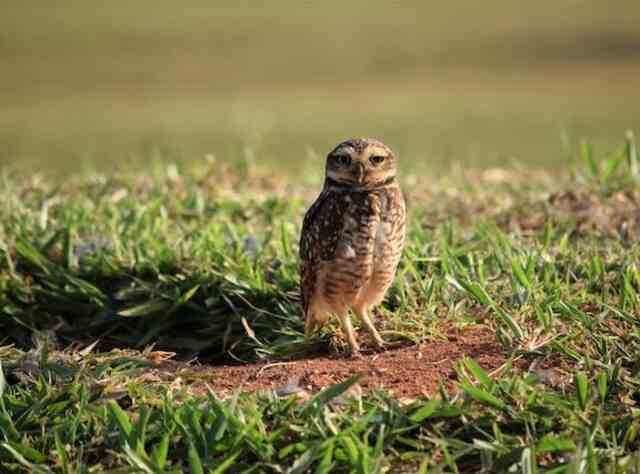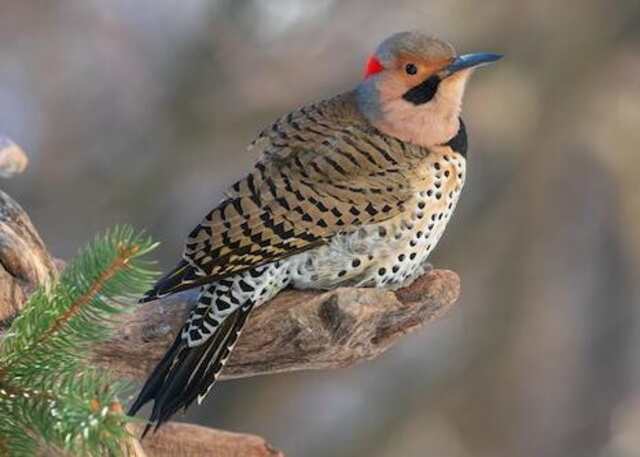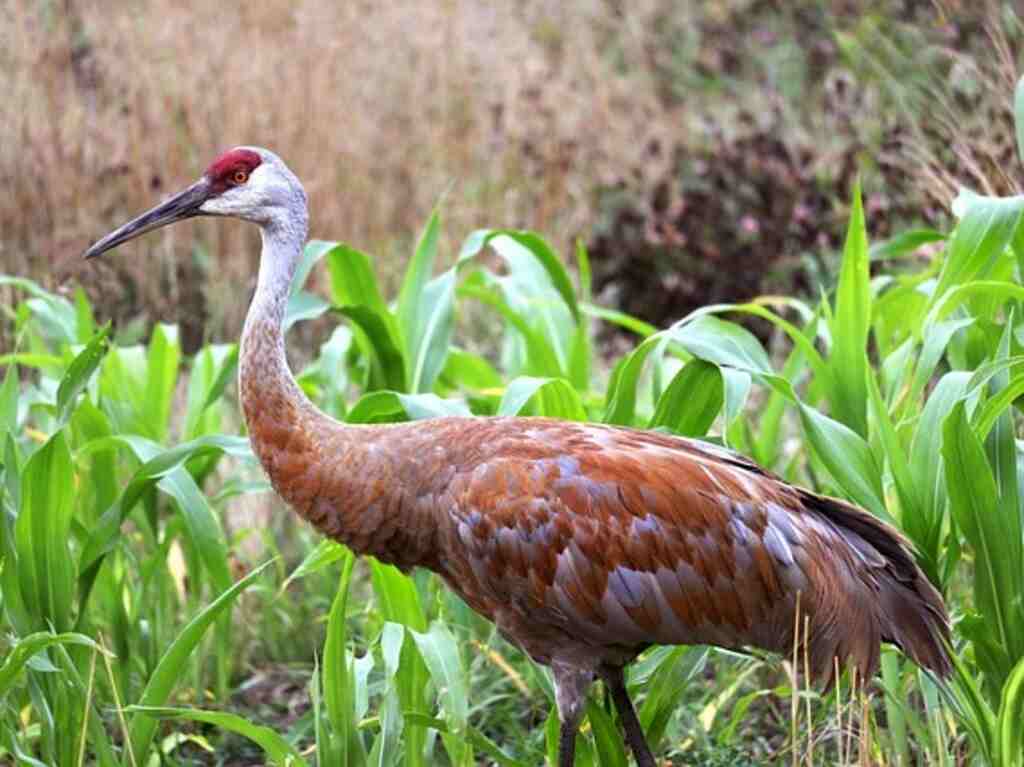If you’re a birdwatching enthusiast, Nevada is a state that should be on your radar. With its diverse range of habitats and abundance of avian life, Nevada offers some of the best birdwatching experiences in the country. From wetland habitats to mountain ranges, there are plenty of hidden gems waiting to be discovered.
Whether you’re a seasoned birdwatcher or just starting out, Nevada has something to offer for everyone. With that in mind, let’s explore the top birdwatching hotspots in Nevada and discover the fascinating world of avian life within the state.
Table of Contents
- 1 Key Takeaways:
- 2 Top Birdwatching Hotspots in Nevada
- 3 Exploring Nevada’s Birdwatching Trails
- 4 Key Bird Species in Nevada
- 5 Noteworthy Birdwatching Events in Nevada
- 6 Exploring Nevada’s Wetland Habitats
- 7 Mountain Ranges: A Haven for Avian Life
- 8 Bird Migration in Nevada
- 9 Lesser-Known Gems: Hidden Birdwatching Hotspots
- 10 Photographing Birds in Nevada
- 11 Essential Birdwatching Gear for a Nevada Adventure
- 12 Conclusion
- 13 FAQs: Top Birdwatching Hotspots in Nevada
- 13.1 What are the top birdwatching hotspots in Nevada?
- 13.2 Are there any specific birdwatching trails in Nevada?
- 13.3 What are the key bird species found in Nevada?
- 13.4 Are there any noteworthy birdwatching events in Nevada?
- 13.5 What are the wetland habitats in Nevada that are known for birdwatching?
- 13.6 Which mountain ranges in Nevada are known for avian life?
- 13.7 What is the bird migration pattern in Nevada?
- 13.8 Are there any lesser-known birdwatching hotspots in Nevada?
- 13.9 What tips do you have for photographing birds in Nevada?
- 13.10 What essential gear do I need for birdwatching in Nevada?
- 14 Author
Key Takeaways:
- Nevada offers diverse habitats for birdwatching, including wetlands and mountain ranges.
- The state is home to a wide variety of bird species, including rare and endangered species.
- There are many hidden gems among the Nevada birdwatching hotspots, waiting to be discovered.
Top Birdwatching Hotspots in Nevada
Nevada is home to a diverse range of bird species, making it a popular destination for birdwatchers. Some of the top birdwatching hotspots in Nevada include the Ruby Mountains, Red Rock Canyon, and the Great Basin National Park.
These areas offer a variety of habitats, from desert valleys to alpine peaks, providing opportunities to spot a wide range of bird species. Whether you’re an experienced birdwatcher or a novice, Nevada’s birdwatching hotspots are sure to provide a memorable experience.
Exploring Nevada’s Birdwatching Trails
Nevada is a birdwatcher’s paradise, and exploring its various birdwatching trails is the perfect way to discover the state’s unique avian life. Whether you’re a seasoned birder or a novice enthusiast, there’s a trail for you.
Red Rock Canyon National Conservation Area
Red Rock Canyon offers breathtaking views of the Mojave Desert and a chance to spot a variety of bird species, including the rare Southwestern Willow Flycatcher. The best time to visit is during the spring and fall, when migratory birds pass through the area. The 13-mile scenic drive is a great way to explore the area.
Spring Mountains National Recreation Area
The Spring Mountains offer a range of birdwatching opportunities, including Mount Charleston, which stands at 11,916 feet and is home to a wide range of bird species, including the Black Rosy-Finch and the Gray-Crowned Rosy Finch. The Mary Jane Falls Trail is a great option for birdwatchers, especially during the summer months, when the breeding season is in full swing.
Great Basin National Park
Great Basin National Park offers a unique birdwatching experience, with the opportunity to spot a variety of bird species, including the Sage Grouse, the Gray-Crowned Rosy Finch, and the White-tailed Ptarmigan. The park has over 60 miles of trails, and visitors can explore the wetlands, meadows, and forests.
Other notable birdwatching trails in Nevada include the Ruby Mountains Scenic Drive, the Lake Tahoe Wildlife Care Center, and the Desert National Wildlife Refuge.
Key Bird Species in Nevada
Nevada is home to a diverse range of bird species, from raptors and waterfowl to songbirds and migratory birds. Here are some of the key bird species that birdwatchers can expect to see in Nevada:
| Bird Species | Habitat | Migratory Pattern | Notable Behaviors |
|---|---|---|---|
| American Avocet | Marshes, Wetlands | Winter migration to Mexico, Central and South America | Distinctive upward-curved bill shape, known for their intricate courtship displays |
| Burrowing Owl | Desert Grasslands, Agriculture Fields | Short-distance migration to southern U.S. and Mexico | Nocturnal, nesting in underground burrows, often seen perched on fenceposts or other structures during the day |
| Mountain Bluebird | Mountains, Forests | Long-distance migration to southern U.S. and Mexico | Known for their stunning blue color, often seen perched on branches or wires, nesting in cavities in trees or nest boxes |
| Great Basin Sage-grouse | Sagebrush Steppe | Minimal migration, remaining in same area year-round | Known for their unique mating display, gathering in leks (mating areas) and puffing up their chests and making distinct popping sounds with air sacs on their chests |
| Peregrine Falcon | Cliffs, Urban Areas | Long-distance migration to South America | One of the fastest birds in the world, known for their incredible diving speeds of up to 240 mph (386 km/h), nesting on ledges of tall buildings or cliffs in the wild |
Other notable bird species found in Nevada include the Black-throated Sparrow, Greater Sage-grouse, Prairie Falcon, and White-faced Ibis, among many others.
Noteworthy Birdwatching Events in Nevada
For avid birdwatchers, Nevada offers several annual events and festivals that celebrate the state’s diverse avian life. These events provide an opportunity to connect with fellow bird enthusiasts, learn from experts, and enjoy guided birdwatching tours.
The High Desert Bird Festival
One of the most popular birdwatching events in Nevada, the High Desert Bird Festival takes place in September each year in the city of Henderson. The festival features guided birdwalks, workshops, and lectures by leading bird experts.
The Ruby Mountain Birding Festival
Located in the scenic Ruby Mountains near Elko, the Ruby Mountain Birding Festival is held annually in June. The festival offers an array of birdwatching tours, workshops, and presentations led by local bird experts.
The Spring Wings Bird Festival
The Spring Wings Bird Festival, held in Fallon each May, is a celebration of the spring migration of birds in Nevada. The festival features guided birdwalks, field trips, workshops, and presentations by bird experts from across the country.
The Christmas Bird Count
Each December, birdwatchers across Nevada take part in the Audubon Society’s Christmas Bird Count, a nationwide citizen science project. Participants spend a day counting the number of birds in a designated area, providing valuable data on bird populations and distribution.
The Lahontan Valley Shorebird Festival
Held annually in May in Fallon, the Lahontan Valley Shorebird Festival celebrates the arrival of thousands of migratory shorebirds that stopover in the area’s wetlands. The festival offers birdwatching tours, educational presentations, and family-friendly activities.
Exploring Nevada’s Wetland Habitats
Nevada’s wetland habitats are a haven for a diverse range of bird species. These unique ecosystems offer ample opportunities for birdwatchers to observe birds in their natural habitats.
The wetlands in Nevada are mainly located in the northern and eastern parts of the state, and are characterized by a mix of marshes, swamps, and shallow bodies of water. They serve as crucial stopover points for migratory birds and provide essential breeding grounds for a variety of bird species.
| Notable Wetland Habitats in Nevada | Location | Key Bird Species |
|---|---|---|
| Ruby Lake National Wildlife Refuge | Elko County | Tundra Swan, Sandhill Crane, American Avocet |
| Stillwater National Wildlife Refuge | Churchill County | Canvasback, Redhead, White-faced Ibis |
| Anaho Island National Wildlife Refuge | Washoe County | American White Pelican, Double-crested Cormorant, Snowy Egret |
To get the most out of birdwatching in Nevada’s wetland habitats, it is recommended to visit during the spring and fall months, when there is a higher concentration of birds.
Popular birdwatching techniques for observing wetland species include using scopes and binoculars, and exploring boardwalks and observation decks that overlook the water.
Whether you’re a seasoned birdwatcher or a novice, Nevada’s wetland habitats offer a unique and unforgettable birding experience.
Mountain Ranges: A Haven for Avian Life
Nevada’s mountain ranges are a paradise for birdwatchers, providing a variety of bird species and habitats. From the peaks to the valleys, each region of the mountains offers unique avian life for bird enthusiasts to observe.
Sierra Nevada Range
The Sierra Nevada Range stretches from California into Nevada and is home to a diverse range of bird life. Birders can expect to see a variety of woodpeckers, chickadees, and nuthatches. The higher elevations provide a home for birds such as the mountain bluebird and the northern goshawk, while the lower elevations feature California quail and the black-chinned sparrow.
Great Basin Range
The Great Basin Range is the largest in Nevada, providing habitats for an array of wildlife, including birds. The range is home to the sage grouse, a bird species that performs a unique mating dance during the breeding season. Birders can also spot the mountain plover, loggerhead shrike, and western tanager in this region.
Ruby Mountains
The Ruby Mountains are located in northeastern Nevada and offer birdwatchers an opportunity to witness the majestic golden eagle. In addition, the mountain range is home to species such as the Cordilleran flycatcher, olive-sided flycatcher, and mountain bluebird. Visitors can hike through the stunning landscapes and observe the native birds in their habitat.
Spring Mountains
The Spring Mountains are located near Las Vegas and offer a different birding experience, with a focus on desert and mountain birds. The mountain range is also home to the red-tailed hawk, which can be observed during its breeding season. Birders can also spot the Clark’s nutcracker, blue-gray gnatcatcher, and Pygmy nuthatch while exploring this region.
Nevada’s mountain ranges provide a unique opportunity for bird enthusiasts to observe avian life and explore the natural beauty of the state.
Bird Migration in Nevada
Nevada plays a vital role in bird migration, serving as a critical stopover location for many bird species. Some birds are just passing through, while others make Nevada their winter home.
The Pacific Flyway, one of the major bird migration routes in North America, passes through Nevada. It is a corridor for species such as the sandhill crane, snow goose, and tundra swan, which rest and refuel in Nevada’s wetland areas.
The Ruby Mountains in northeastern Nevada are also a crucial stopover location for many migratory birds, particularly raptors like the golden eagle and Swainson’s hawk. These birds of prey are known to use the thermals in this area to coast through the mountains before continuing their journey.
During the fall migration, watch for warblers, vireos, and thrushes in Nevada’s mountain ranges. The highest elevations are best for spotting birds such as the Townsend’s solitaire and the black rosy-finch.
Lesser-Known Gems: Hidden Birdwatching Hotspots
While Nevada is well-known for its popular birdwatching destinations, there are also lesser-known areas that offer incredible birding experiences. These hidden gems provide a chance to explore unique habitats and observe bird species that may not be found in more heavily trafficked areas.
Here are some of the top hidden birdwatching hotspots in Nevada:
| Location | Key Bird Species | Unique Features |
|---|---|---|
| Spring Mountains National Recreation Area | Mountain Quail, Pinyon Jay, White-headed Woodpecker | Alpine forests, high-elevation meadows, and rugged canyons. |
| Sloan Canyon National Conservation Area | Gambel’s Quail, Bell’s Sparrow, Black-throated Sparrow | Protected wilderness area, rugged terrain, and seasonal streams. |
| Washoe Lake State Park | American Avocet, Black-necked Stilt, Long-billed Dowitcher | Wetlands, marshes, and shoreline habitats surrounding Washoe Lake. |
Visiting these lesser-known hotspots can provide birdwatchers with a unique and secluded experience, away from the crowds of more popular sites. These locations often offer distinct habitats and bird species, making them a valuable addition to any Nevada birdwatching adventure.
Photographing Birds in Nevada
Birdwatching in Nevada is an incredible experience, and capturing stunning photographs of its avian residents is a great way to preserve those memories. Here are some tips to help you take fantastic bird photos:
- Bring the right equipment: A camera with a telephoto lens is essential for capturing detailed images of birds. Consider investing in a tripod or monopod to stabilize your camera and reduce blur.
- Get familiar with your avian targets: Learn about the specific bird species you want to photograph. Understanding their behavior and habits can increase your chances of getting great shots.
- Choose optimal lighting: Early morning and late afternoon are the best times for bird photography. The soft, warm light can enhance the natural beauty of your subjects. Avoid harsh midday light, which can cast unflattering shadows.
- Be patient: Getting great bird photos takes time. Observing and waiting for birds to display unique behaviors or poses can result in stunning images.
- Practice your technique: Experiment with different camera settings and compositions to find the best approach for your shots. Try shooting in burst mode or using a shallow depth of field to create a soft, blurred background.
- Respect wildlife and their habitats: Remember to prioritize the welfare of birds and their environments. Avoid disturbing their nests or habitats and keep a safe distance.
With these tips in mind, you’ll be well on your way to capturing the beauty and majesty of Nevada’s incredible birdlife.
Essential Birdwatching Gear for a Nevada Adventure
When planning a birdwatching adventure in Nevada, it is important to have the right gear for maximum comfort and visibility. Here are some essential items to consider:
| Item | Description |
|---|---|
| Binoculars | A good pair of binoculars is essential for birdwatching. Look for binoculars with a magnification of at least 8x and a wide field of view. |
| Field Guide | A field guide specific to Nevada’s bird species will help you identify and learn about the birds you see. |
| Hiking Gear | Comfortable hiking shoes with good grip, a hat, and sunscreen are important when exploring Nevada’s birdwatching trails and hotspots. |
| Clothing Layers | Weather in Nevada can be unpredictable, with sudden changes in temperature. It’s recommended to dress in layers, so you can adjust your clothing based on the conditions. |
| Water and Snacks | Staying hydrated and fuelled on your birdwatching adventure is crucial, so bring plenty of water and healthy snacks. |
Investing in quality gear will enhance your birdwatching experience, and Nevada’s diverse avian life is worth the effort.
Conclusion
In conclusion, birdwatching in Nevada is an experience like no other. With a diverse range of bird species and hidden gems waiting to be discovered, Nevada truly is a birding destination worth exploring.
From the wetland habitats to the mountain ranges, there are plenty of opportunities to observe birds in their natural habitats.
Whether you are an experienced birdwatcher or just starting out, Nevada offers a wide range of birdwatching trails and events to suit any level of expertise.
With a little bit of preparation, including essential gear and knowledge of the best times to visit, you can make the most out of your birding adventure in Nevada.
Don’t forget to bring your camera and capture the stunning beauty of the avian life found in Nevada.
With the right equipment and techniques, you can create lasting memories of your birdwatching adventure.
So why not plan your next birding trip to Nevada? Discover the hidden gems waiting to be explored and enjoy the magic of birdwatching in this beautiful state.
FAQs: Top Birdwatching Hotspots in Nevada
What are the top birdwatching hotspots in Nevada?
There are several notable birdwatching hotspots in Nevada, including the Great Basin National Park, Red Rock Canyon National Conservation Area, and the Ruby Mountains. These areas offer diverse habitats and attract a wide range of bird species for birdwatchers to observe.
Are there any specific birdwatching trails in Nevada?
Yes, Nevada offers a variety of birdwatching trails, such as the Ash Meadows National Wildlife Refuge Trail, the Wetlands Park Nature Preserve Loop, and the Spring Mountains National Recreation Area Trails. These trails provide unique opportunities to spot various bird species and explore the natural beauty of Nevada.
What are the key bird species found in Nevada?
Nevada is home to a diverse range of bird species, including the Greater Sage-Grouse, American White Pelican, Golden Eagle, and Mountain Bluebird. Other notable species include the Black Rosy-Finch, Virginia’s Warbler, and Western Tanager.
Are there any noteworthy birdwatching events in Nevada?
Yes, Nevada hosts several birdwatching events and festivals throughout the year. Some of the notable events include the Wings Over the Prairie Festival, the Red Rock Rendezvous Birding Festival, and the Great Basin Bird Observatory Conference. These events offer opportunities for birdwatchers to connect with experts and participate in guided tours and workshops.
What are the wetland habitats in Nevada that are known for birdwatching?
Nevada is home to several wetland habitats that attract a wide variety of bird species. Notable wetland areas for birdwatching include the Carson River Wetlands, Truckee River Wetlands, and the Lahontan Valley Wetlands. These habitats provide crucial resting and feeding areas for migratory birds.
Which mountain ranges in Nevada are known for avian life?
The mountain ranges of Nevada, such as the Sierra Nevada Range, the Spring Mountains, and the Ruby Mountains, are important birdwatching hotspots. These areas offer diverse habitats and are home to a variety of bird species, including raptors, songbirds, and waterfowl.
What is the bird migration pattern in Nevada?
Nevada serves as a stopover location for migratory birds during their journeys. The state lies along important migration routes, such as the Pacific Flyway, and provides essential habitats and resources for resting and refueling. Notable migratory bird species that pass through Nevada include Sandhill Cranes, Western Tanagers, and various shorebirds.
Are there any lesser-known birdwatching hotspots in Nevada?
Yes, Nevada has hidden gems that may not be as well-known but offer exceptional birdwatching experiences. Some lesser-known hotspots include Stillwater National Wildlife Refuge, Ruby Lake National Wildlife Refuge, and Big Wash Reservoir. These areas provide opportunities to observe unique bird species in quieter and less crowded settings.
What tips do you have for photographing birds in Nevada?
When photographing birds in Nevada, it’s essential to have a telephoto lens to capture birds from a distance. Patience is key, as birds can be elusive and move quickly. It’s also helpful to research the specific bird species you want to photograph and their preferred habitats. Consider visiting birdwatching hotspots during the early morning or late afternoon for the best lighting conditions.
What essential gear do I need for birdwatching in Nevada?
Some essential gear for birdwatching in Nevada includes binoculars, a field guide for bird identification, comfortable hiking gear, and appropriate clothing for changing weather conditions. It’s also advisable to carry a camera for capturing bird sightings and a portable tripod for stability. Choosing lightweight and durable gear is important for birdwatching adventures.

